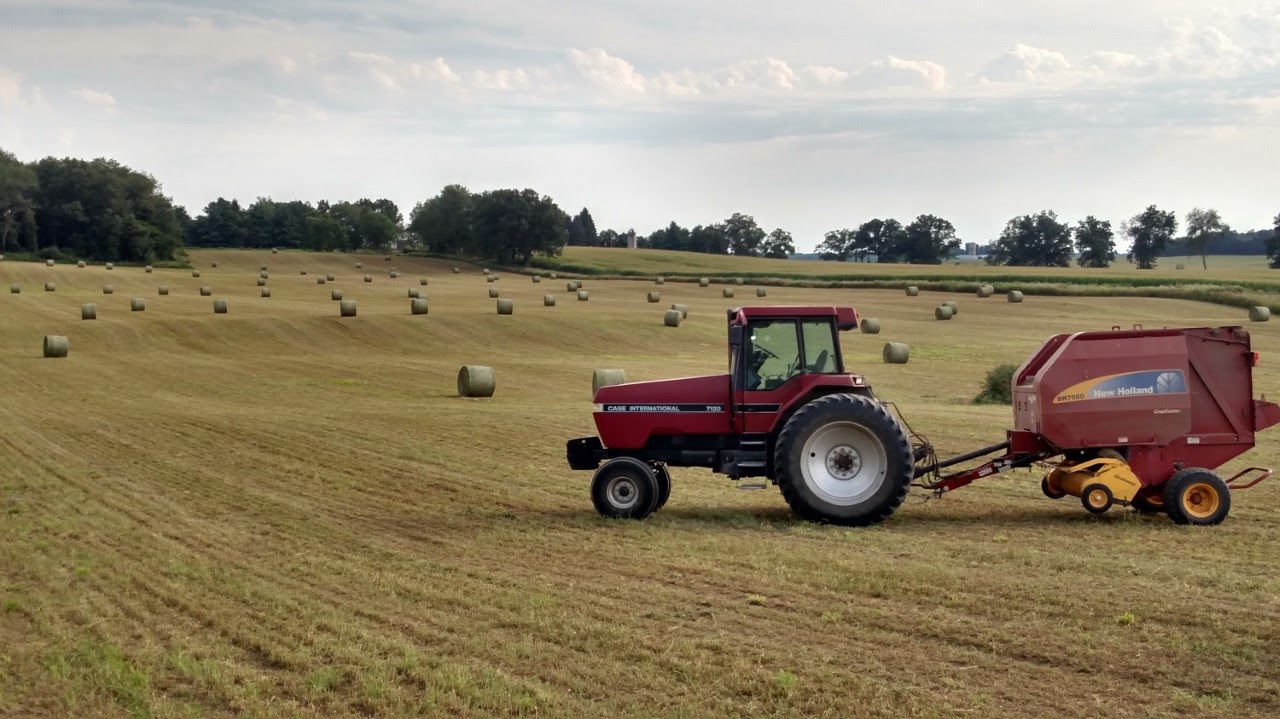
Less than 2% of Americans make it possible for the rest of the country to eat. Every year, these men and women make decisions worth millions of dollars and brave the unknown to sustain the nation. And for some of these farmers and ranchers, Hillsdale County is their home.
The Hillsdale Conservation District celebrated farmers and ranchers during National Agriculture Week, which was March 22 – 27.
Chris Brooks, a fourth-generation cattle farmer, said celebrating agriculture helps society understand the triumphs and struggles of multiple generations.
“Farming holds a lot of tradition,” Brooks said. “The younger generation has looked to their elders and decided to take on all the hard work.”
According to the 2017 Census of Agriculture, 96% of Michigan farms are family-owned.
Hillsdale Country crop farmer Stuart Welden said agricultural education and awareness of where food comes from is paramount for society.
“It’s very, very scary when people don’t know the difference between sweet corn and field corn. That used to be common knowledge,” Welden said. “But now opportunities for common knowledge have been replaced with screen time.”
Most Americans have only been off the farm for two generations. As society becomes less agrarian, people lose touch with natural facts, Welden said.
“I think it’s very important to respect the differences between men and women. Kids on farms are raised with knowledge of the birthing process, but now people think that’s gross,” Welden said. “Today we see people trying to mitigate differences between men and women, which I think is a product of urbanization.”
Kayla Lewis, a dairy farmer and the president of the Hillsdale County Farm Bureau Board, said farmers face many challenges, including finding adequate labor to run farms, variations in prices, and locally, issues with broadband internet connection.
In Hillsdale County, 27% of farms don’t have internet access, according to the 2017 Census of Agriculture.
“Rural areas often don’t have good connections to Wi-Fi, but tractors are using more and more technology,” Lewis said. “Because of COVID-19 and Zoom calls, it’s been even harder for farmers to connect to Wi-Fi.”
Recent years have also seen an increase in farmers struggling with mental health because of struggles with their business, Lewis said.
“Thanking a farmer goes a long way, because there are days when we feel like ‘why are we doing this?’” Lewis said. “It’s not easy to be a farmer anymore, but it’s nice to know that you’re feeding people and can count on other farmers when you need to.”
Farming is difficult because of the many risks and constant changes, Brooks said.
“Farming is like being in Vegas: you don’t know what’s going to happen. There’s no control over Mother Nature,” Brooks said. “I’ve put myself in charge of many livestock, and every day I have to be an economist, a vet, a technician, and many other roles. Farmers just have to roll with the punches.”
Despite the hardships, Brooks said there is nothing he would rather do.
“I’m friends with everyone in the agriculture industry, and now my kids get to grow up with other farming families,” Brooks said. “It’s the most humbling and honest form of work, but it’s not always respected in society.”
Because the public is often less informed about agricultural practices, there has been tension between rural and urban communities, Welden said. A common example is when people sue farmers for the smell of manure in their neighborhoods.
Both Welden and Brooks said they encourage people to gather facts and talk to farmers before taking legal action.
“You don’t know what you don’t know, so ask,” Welden said. “One thing people need to know is that all farmers love the environment because we make our livelihood off of mother nature.”
Agriculture is consistently in Michigan’s top three industries, meaning farmers seek to be profitable, but also environmentally responsible in their work, crop farmer Jay Williams said.
“We want to leave the land better than when we started,” Williams said.
Williams, his wife, and three sons live on the farm that has been in Williams’ family since the 1890s. They grow corn, soybeans, wheat, and alfalfa. They are the first farmers in Michigan to use drones to apply seed to fields. The Williams farm practices good stewardship of the land by using drones to plant cover crops—plants that won’t be harvested, but help prevent soil erosion and enhance nutrients in the soil—and using no-till farming, Williams said.
“Healthy agriculture is good for a healthy Michigan and a healthy America,” Williams said.
Although National Agriculture Week is over, the farmers of Hillsdale hope people will continue to learn about the people and places feeding America.
“I encourage anyone who lives around a farmer of any sort to go talk to them,” Welden said. “They want to be approached. The average family farmer makes a million dollars worth of decisions every year. The better informed people are, the better neighbors we can be.”

